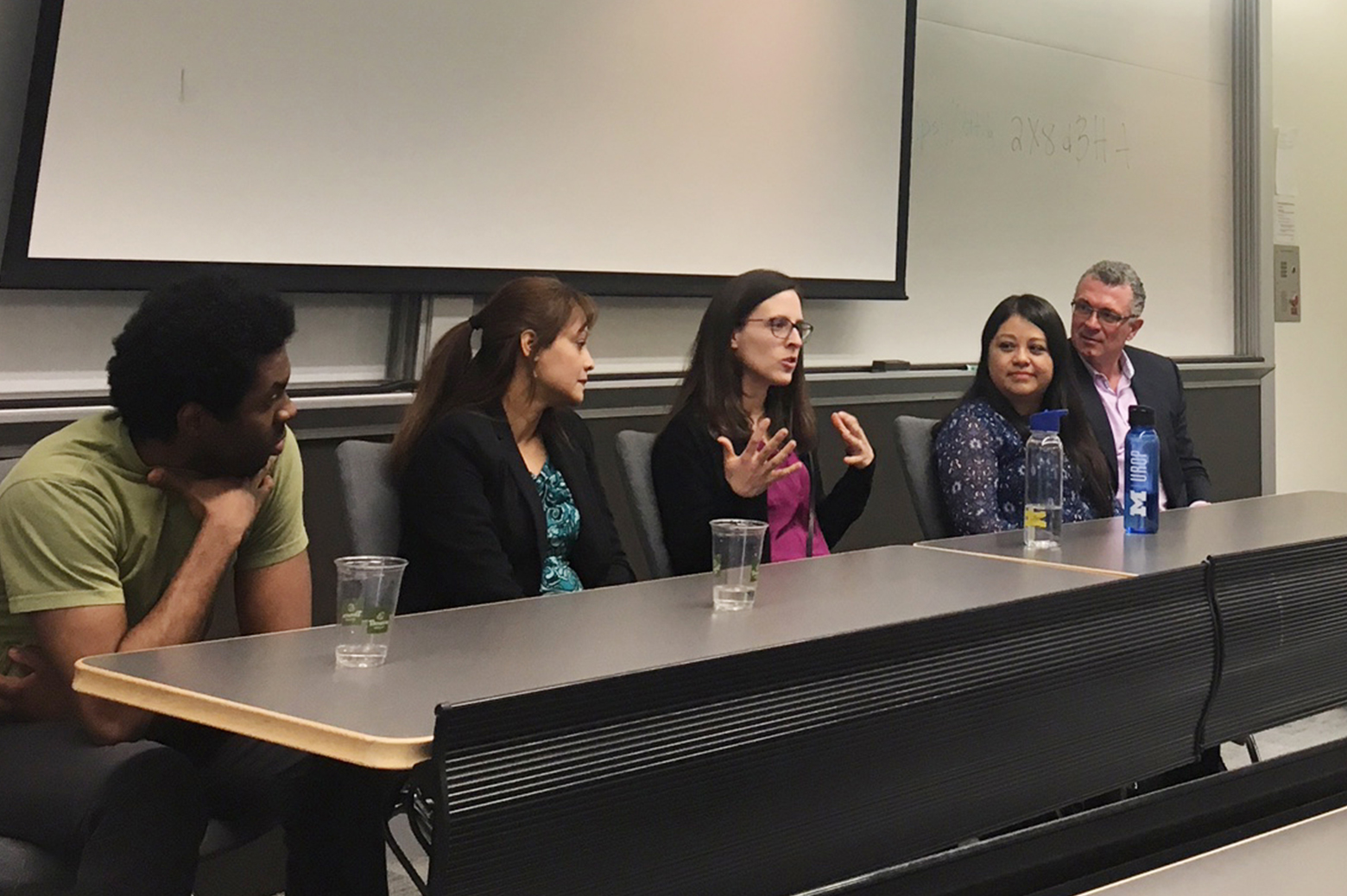Program to engage CS undergrads in research supported for another year
Workshop organizers believe a key strategy to increasing the number of women in computing research is to introduce them to the research process early on.

 Enlarge
Enlarge
A team led by Prof. Rada Mihalcea has been awarded a Google grant to continue a program designed to expose undergraduate students to computer science research, specifically aiming to encourage women and underrepresented minority students. The project earned $10,000 from Google’s exploreCSR: Google Grant Pilot Program for Undergraduate Computer Science Research Focused Workshops for Women. Lecturer Laura Burdick, Profs. Danai Koutra and Nikola Banovic, and PhD student Allison Lahnala are Co-PIs on the project.
The team will lead an in-depth workshop and research project spanning two semesters. Around 30 students will work with faculty or grad student mentors on a subject of their choice, coming away with 35 hours of hands-on experience. The mentors will work in small groups with the participants, providing them with guidance and computational resources. The work will be supplemented by short workshops and seminars throughout the year, as well as a year-end poster session and career panel of research experts.
The overarching goal of the workshop is to encourage a group of students with lower representation in research careers to consider this route.
Following past rounds of the workshop, which has been organized in partnership with Girls Encoded since 2018, over 90% of participants continued on to graduate school. In 2019, a quarter of the students enrolled in the program continued to do research with their mentors past the end of the program.
Read about the 2018-2019 and 2019-2020 poster presentations.
According to a recent NSF report, less than 20% of undergraduates enrolled in computer science degree programs are women. The field also greatly underrepresents African American, Hispanic/Latinx, and Native American students, especially at the doctoral level.
“The field of CS is growing at a staggering pace, and yet women and minorities continue to be heavily underrepresented, both in the workplace and the classroom,” the team writes in their project description.
The issue persists at Michigan – 22.8% of undergraduates in the division’s programs are women and only 7.8% are Black, Native American, or Hispanic. In the CSE PhD program, the percentage of women has been steadily increasing over the years. They now represent 22% of enrolled PhDs in 2019; but enrollment of Black, Native American, or Hispanic students remains very low.
But past efforts by Mihalcea and Burdick, who ran this program with support from Google ExploreCSR for the past two academic years, have helped move the needle in the right direction.
In the first iteration (2018-2019), the program recruited 35 students, 32 of whom self-identified as women; 2 as African American; and 5 as the first person in their immediate family to attend college. In the second iteration (2019-2020), they recruited 27 students, 20 of whom self-identified as women, 1 as African American, 1 as Hispanic/Latinx; and 3 as the first person in their immediate family to attend college.
Google’s exploreCSR program is intended to provide one-time grants to support the design, development, and execution of regional research-focused workshops during the 2018-2019 academic year. Workshops must provide opportunities for undergraduate women in computer science (and related fields) to learn more about graduate study and research careers in computer science.
 MENU
MENU